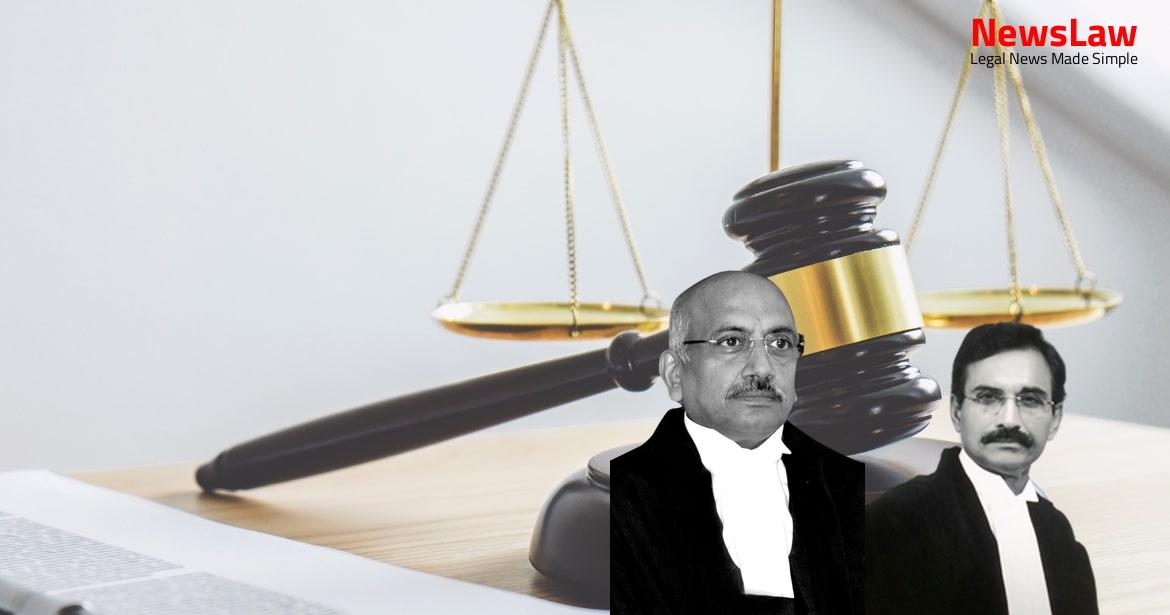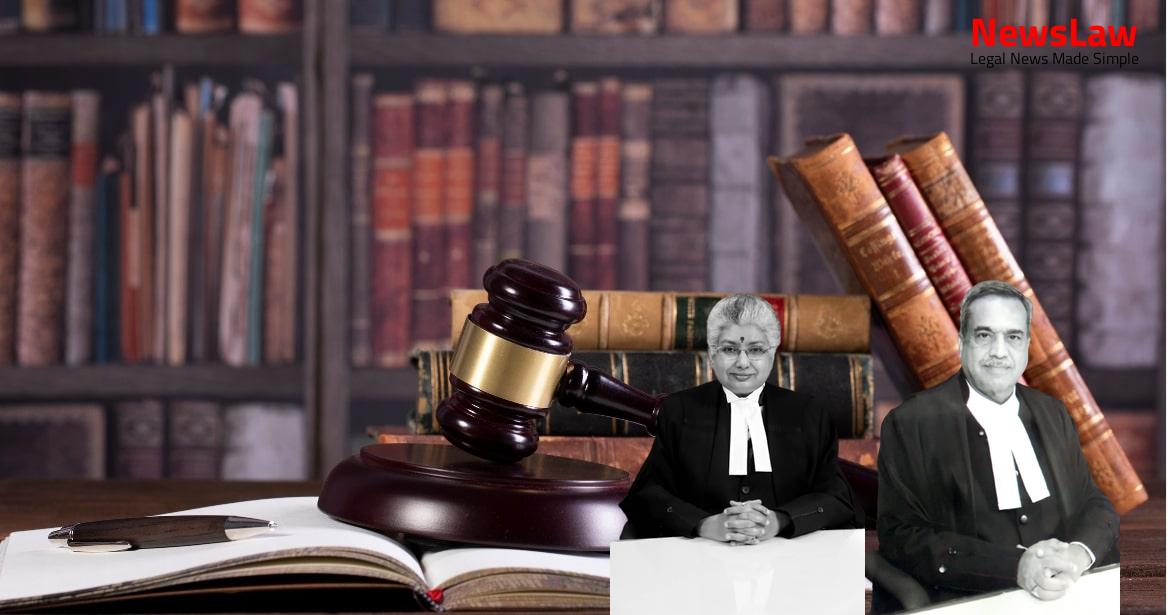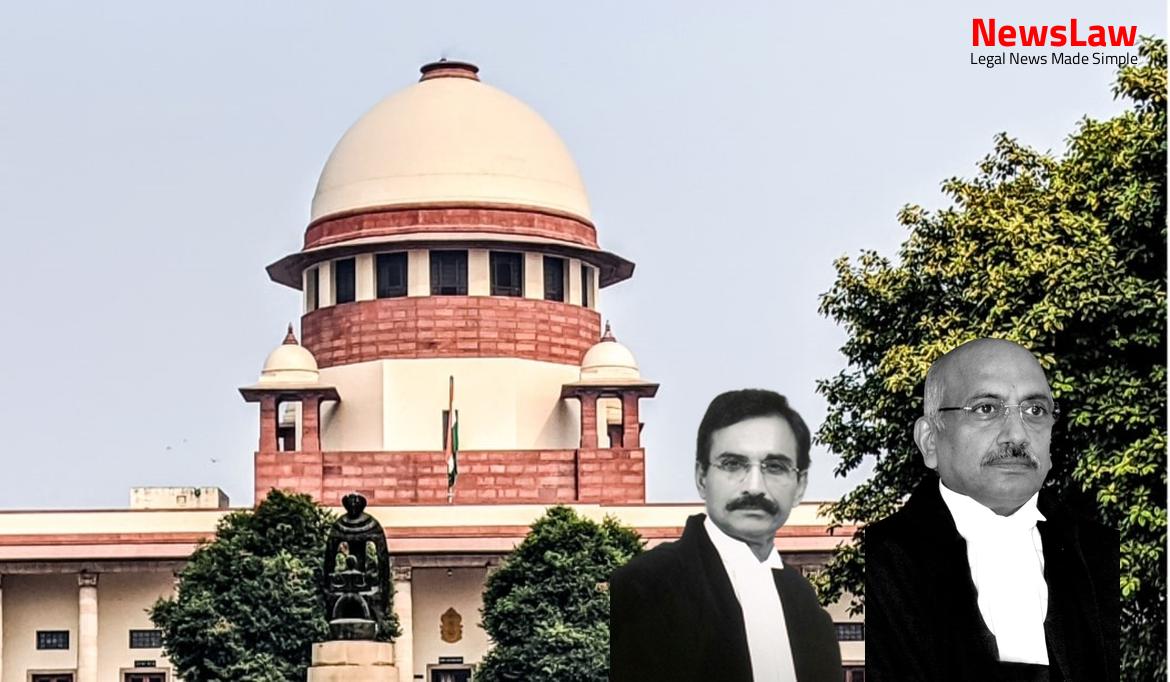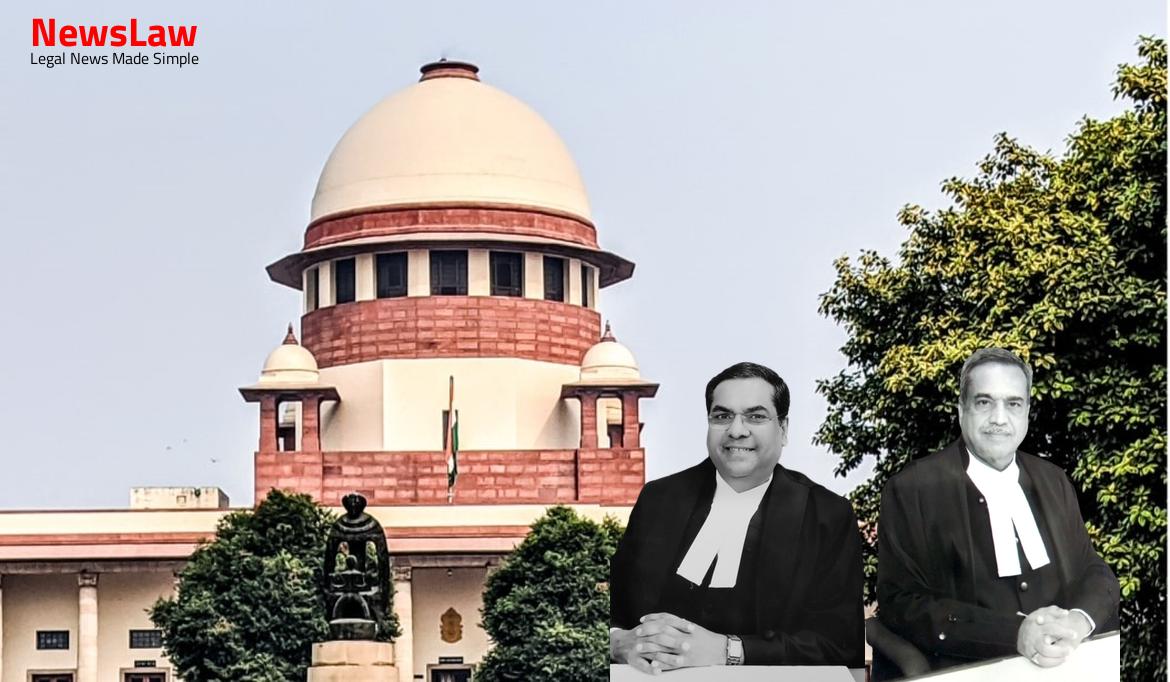In a significant legal development, the Supreme Court of India addressed the complex issue of property ownership in the case involving Zorawar Singh. The judgement provides insights into the interpretation of Section 213 of the Indian Succession Act, shedding light on the intricacies of inheritance laws. Stay updated on the latest legal proceedings with regard to property rights in this landmark case.
Facts
- Zorawar Singh executed a Will and codicil bequeathing self-acquired property to both parties.
- Zorawar Singh passed away on January 4, 1986.
- Single Bench allowed an application under Order 7 Rule 11, stating the suit is not maintainable as per Section 213 of the Indian Succession Act, 1925.
- Challenge in the present appeal is against the order of the Division Bench accepting an intra court appeal.
- Two suits were filed, one by the present respondents claiming declaration and injunction regarding the Will and codicil of Zorawar Singh and the will of Smt. Ram Pyari.
- The other suit was filed by the present appellant claiming natural succession.
- The Division Bench of the High Court ruled that the bar under Section 213 of the Act is not applicable.
- The court set aside the order of rejection of plaint and directed that both suits be clubbed for common evidence.
Also Read: Supreme Court Ruling on Dowry Harassment and Suicide Case
Issue
- The issue to be examined is whether it is necessary to determine the ownership of immoveable property in New Delhi previously owned by Zorawar Singh.
- The National Capital Region Delhi was included in the State of Punjab before November 1, 1966, which is undisputed.
- The legal question at hand pertains to the ownership rights of the property in New Delhi.
Also Read: Case of Technical Equipment Officer Appointment Criteria Dispute
Arguments
- The learned Single Judge faced difficulty due to conflicting views on the necessity of probate in setting up a claim based on a will.
- Falshaw, J. disagreed with Shamsher Bahadur, J.’s view in Kesar Singh’s case, stating that probate is not required to claim movable or immovable property based on a will in Punjab.
- Falshaw, J. referred to the Ganshomdass v. Gulab Bi Rai case and observed that probate is not necessary when properties and parties are not in Bengal, Madras, or Bombay.
- Respondents argued that Section 57 of the Act does not mandate probate if properties or parties are not in Bengal, Madras, or Bombay.
- Reference was made to the Clarence Pais & Ors. v. Union of India case where the validity of Section 213 of the Act was challenged as unconstitutional and discriminatory against Christians.
Also Read: Supreme Court Judgement on Transfer of Mining Environmental Clearances
Analysis
- The statutory provisions clarify that no probate is required to set up a claim on property based on a will in Punjab, not relating to specified territories.
- Probate is not needed for a Hindu regarding a will made outside the specified territories or concerning immovable properties outside those territories.
- Section 213(1) of the Act is applicable to Hindus, Buddhists, Sikhs, and Jains subject to certain jurisdictional limits.
- Sub-section (2) of section 213 applies to cases where parties and property are within specific territories, while clause (b) applies when parties are outside but property is within those territories.
- The rigour of section 213 is not applicable when both the person and property of a Hindu are outside the specified territories.
- The Full Bench decision affirms that the requirement for probate does not apply to wills made outside certain territories unless they relate to immovable property within those territories.
- In the National Capital Region, Section 213 of the Act applies if the will relates to immovable property within specific territories.
- The judgments cited by the defendants support the conclusion that for wills made in Delhi concerning immovable property in Delhi by Hindu, Buddhism, Sikh, or Jaina, probate is not required.
- Section 213(2) of the Act applies to Wills made by Hindu, Buddhist, Sikh or Jain specified in clauses (a) or (b) of Section 57.
- Clause (c) of Section 57 does not apply in view of Section 213(2) of the Act.
- Judgments in Punjab, Haryana, and Delhi have upheld the applicability of certain provisions to Wills and codicils made by Hindus, etc., within specific territories and limits.
- The Division Bench of the Delhi High Court judgement was not found to have any error.
- The Punjab High Court held that if a will is made by Hindu, Buddhist, Sikh, or Jaina outside Bengal, Madras, or Bombay, the embargo contained in Section 213 shall not apply if the Madras case is in accordance with Section 213 read with Section 57 of the Act.
- The Supreme Court in Mrs. Hem Nolini v. Mrs. Isolve Sarojbashini Bose considered the implications of sub-section (1) of Section 213 of the Act for Christians, but not of sub-section (2) of that section.
- A combined reading of Sections 213 and 57 of the Act shows that sub-section (2) of Section 213 applies when the parties are Hindus or the properties in dispute are not in territories falling under Sections 57(a) and (b).
- Shamsher Bahadur, J., held that a defendant cannot rely on a will executed in Madras in defense of a claim when the will is not probated and no letters of administration with the will annexed have been granted.
- Delhi High Court and Lahore High Court expressed similar views on the mandatory requirement of probate based on a cursory glance at sections 213 and 57 of the Act.
- The case of Sohan Singh v. Bhag Singh was not brought to the notice of Shamsher Bahadur, J., which led to an erroneous view being taken in the mentioned case.
- In Mrs. Winifred Nora Theophilus v. Mr. Lila Deane & Ors., a Single Bench of Delhi High Court opined on the interpretation of Section 213 read with Section 57(a) and (b) for wills made by Hindu, Buddhist, Sikh, and Jaina.
- The findings in the collateral proceedings in the suit would not be applicable to the present case.
- The facts of the present case vary significantly from those in the collateral proceedings.
- Therefore, the findings arrived at in the collateral proceedings would have no relevance or application to the current case.
Case Title: KANTA YADAV Vs. OM PRAKASH YADAV
Case Number: C.A. No.-005823-005823 / 2019



